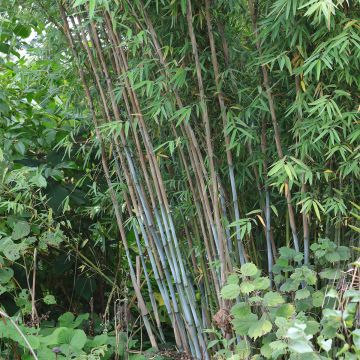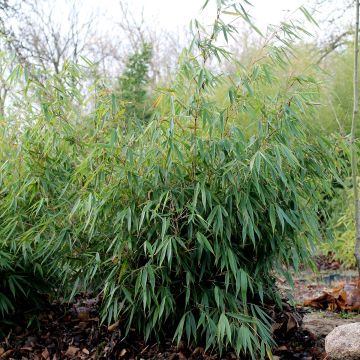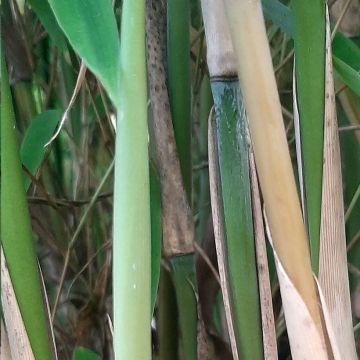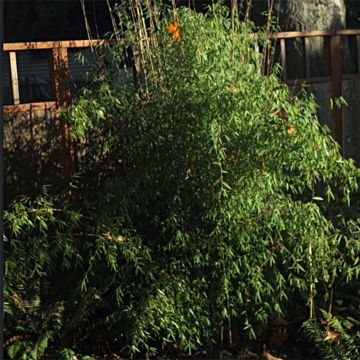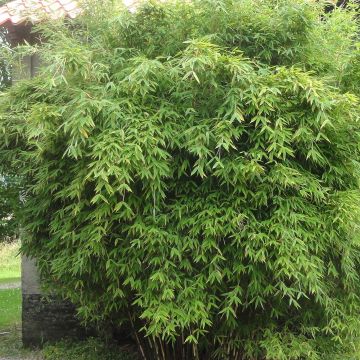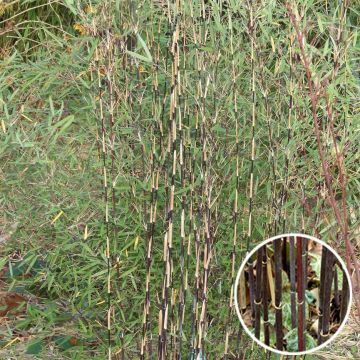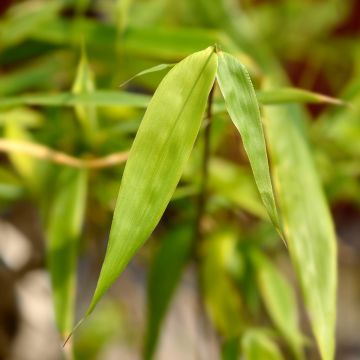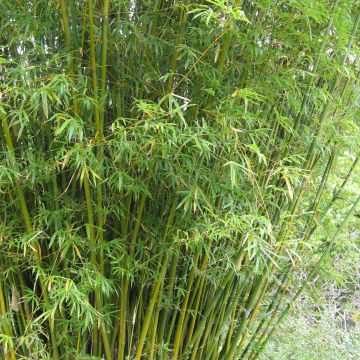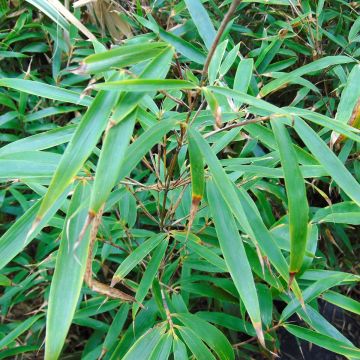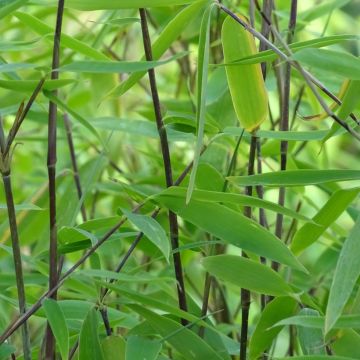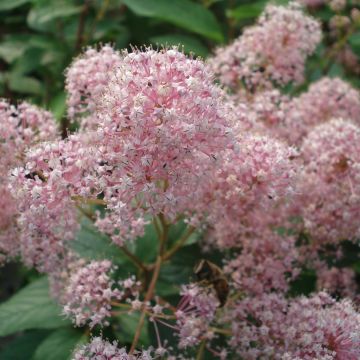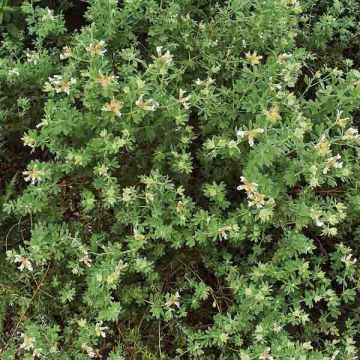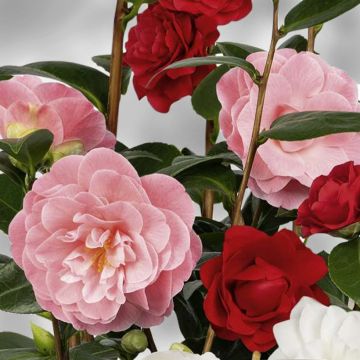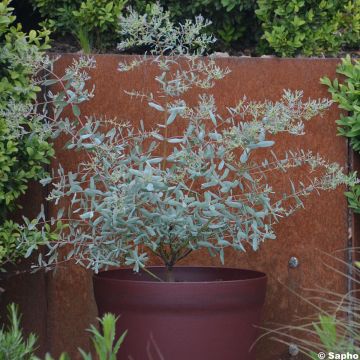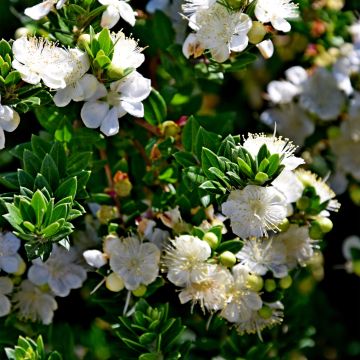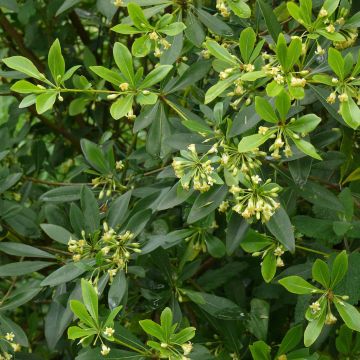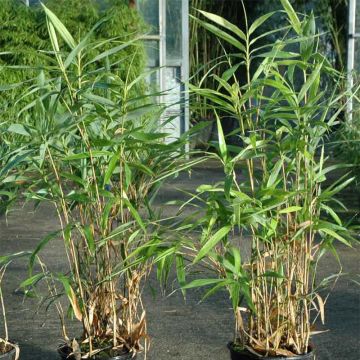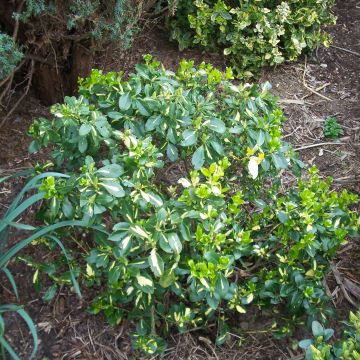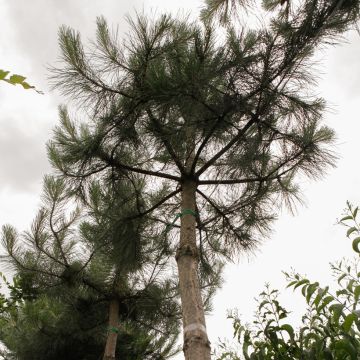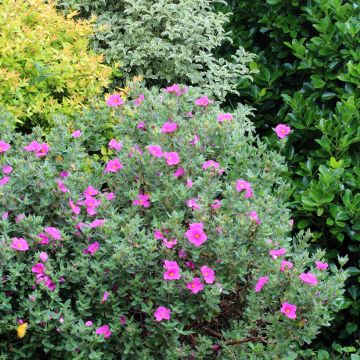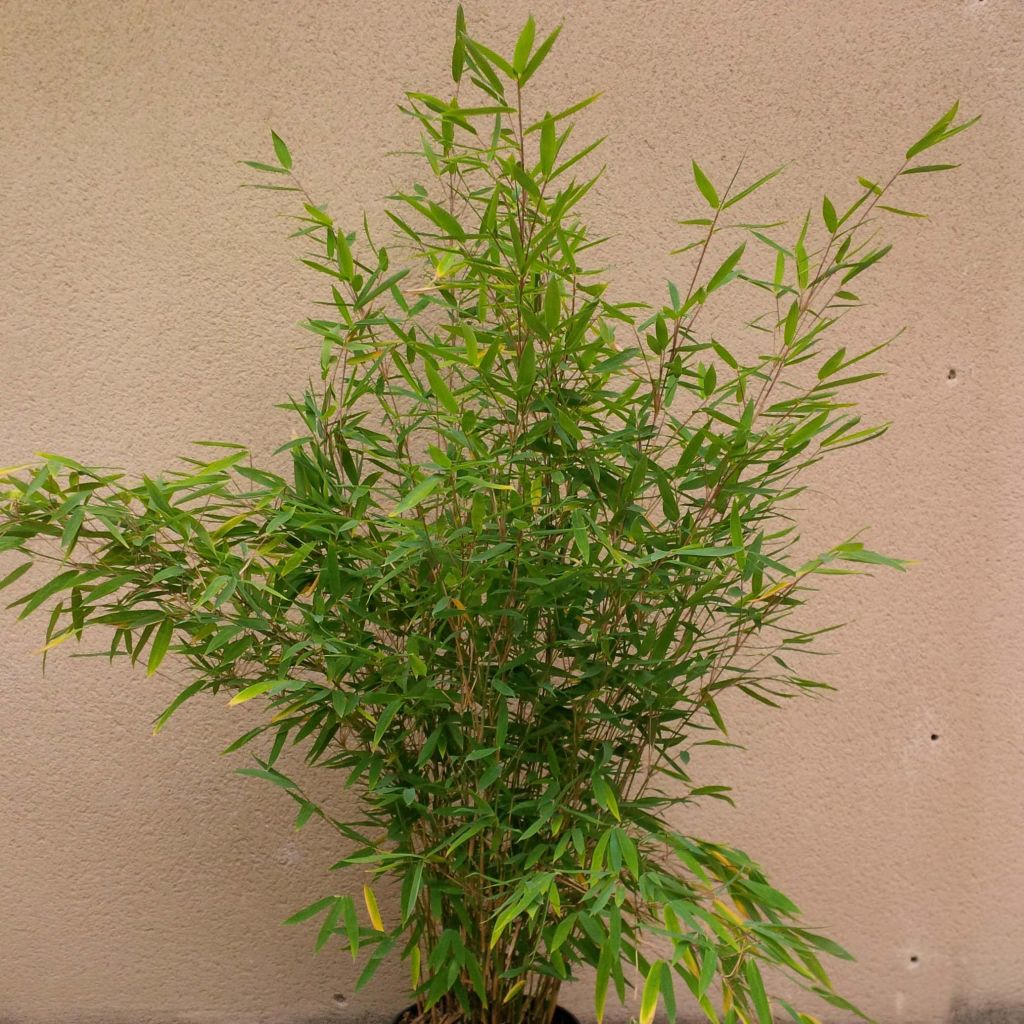

Fargesia Winter Joy - Non-running Bamboo
Fargesia Winter Joy - Non-running Bamboo
Fargesia nitida x murielae Winter Joy ®
Fountain Bamboo, Chinese Fountain Bamboo
This item cannot be shipped to the selected country
Delivery charge from €5.90
Oversize package delivery charge from €6.90
Delivery charge from €5.90
More information
Schedule delivery date,
and select date in basket
This plant carries a 24 months recovery warranty
More information
We guarantee the quality of our plants for a full growing cycle, and will replace at our expense any plant that fails to recover under normal climatic and planting conditions.
From €5.90 for pickup delivery and €6.90 for home delivery
Express home delivery from €8.90.
Oversize package: home delivery by special carrier from €6.90 per order..
Express home delivery from €8.90.
From €5.90 for pickup delivery and €6.90 for home delivery
Express home delivery from €8.90.
Does this plant fit my garden?
Set up your Plantfit profile →
Description
Fargesia Winter Joy® is a very recent non-invasive variety of bamboo that can be enjoyed even in the middle of winter. Its evergreen foliage remains very dense and its canes darken in the cold. With its beautiful vigour, changing colours of the stems, and broad light green foliage, this Fargesia quickly forms a dense clump with a graceful habit. It works well as a hedge and creates windbreak or privacy screens that are both ornamental and effective. In the ground or in pots, this robust bamboo thrives in all exposures, in a cool but well-drained soil, preferably non-chalky. Like all Fargesia, it spreads slowly over the years without ever becoming invasive.
The Fargesia Winter Joy® is a plant in the family of poaceae, a kind of woody-stemmed grass that develops from a non-invasive rhizomatous stump, called a clump-forming bamboo. In this type of bamboo, the very short internode rhizomes develop slowly at the periphery of the stump, which gradually expands, but the clump remains dense, without thinning in the centre. It is a recent Dutch horticultural creation resulting from the cross-breeding of F. murielae 'Wilson' and F. nitida. These plants, native to the Chinese mountains, have passed on their cold resistance to Winter Joy®.
Winter Joy® forms a dense clump at the base, slightly flared and arching upwards, reaching about 3m (9.8ft) in height, depending on the growing conditions. Its growth is very rapid, around 40 to 50cm (19.7in) per year at least. Eventually, the plant will spread over 1m (3.3ft) on the ground. The canes or stems are so close together that they form a very dense vertical screen, almost impenetrable. They are upright, slender, 1-2cm (0.4 - 0.8in) in diameter but sturdy. Covered with bloom and bluish-purple when young, they quickly turn more plum-coloured, then dark green with red highlights before eventually turning brown over time. The foliage is evergreen and distributed on the upper half of the plant. Particularly abundant, the leaves are quite large, lanceolate, and tapering at the tip. Their colour is a light green, with a satin finish. The oldest leaves fall throughout the year, especially in autumn.
The Fargesia Winter Joy®, splendid in winter, very dense in stems and foliage, evergreen and fast-growing, is perfect for creating a windbreak or an effective noise barrier. It can also be showcased in the garden or on the terrace, as a solitary clump or in a large pot or container. It integrates well into a shrub border with the likes of conifers, evergreen Prunus, or Japanese maples. Some perennials like tall grasses, giant cannas, and tall dahlias (Dahlia imperialis) will also be good companions for this beautiful bamboo. To add surprising foliage interest during the growing season, it can be paired with a viticella-type clematis with red flowers such as ('Madame Julia Correvon', purpurea Plena 'Elegans', 'Avant Garde'), whose stems will twine around the canes, their small leaves blending naturally into the lush vegetation of Winter Joy® bamboo.
Report an error about the product description
Fargesia Winter Joy - Non-running Bamboo in pictures
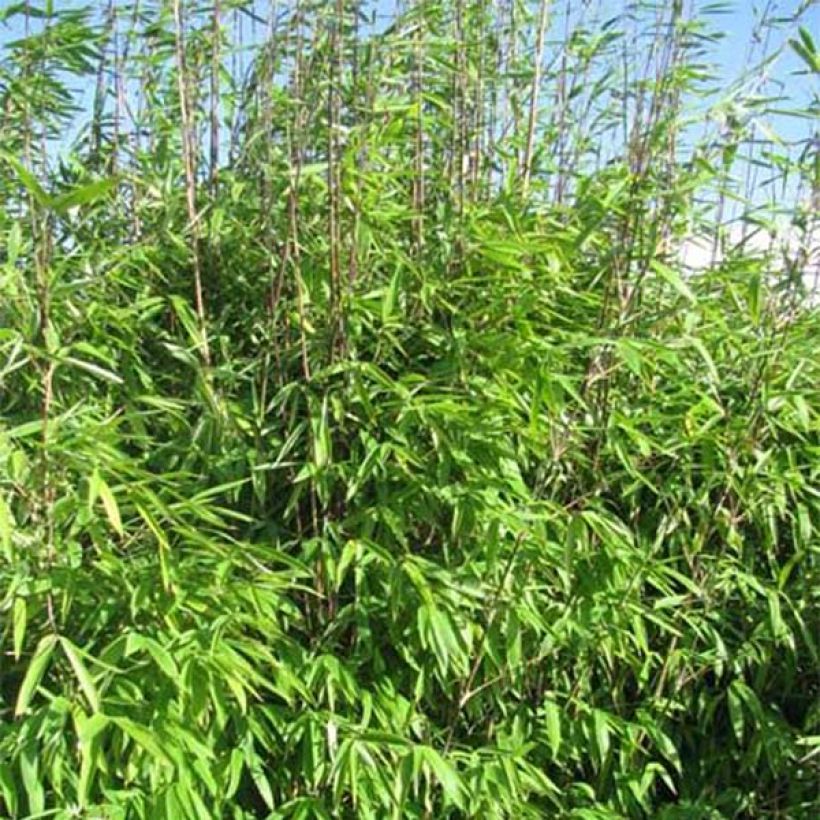

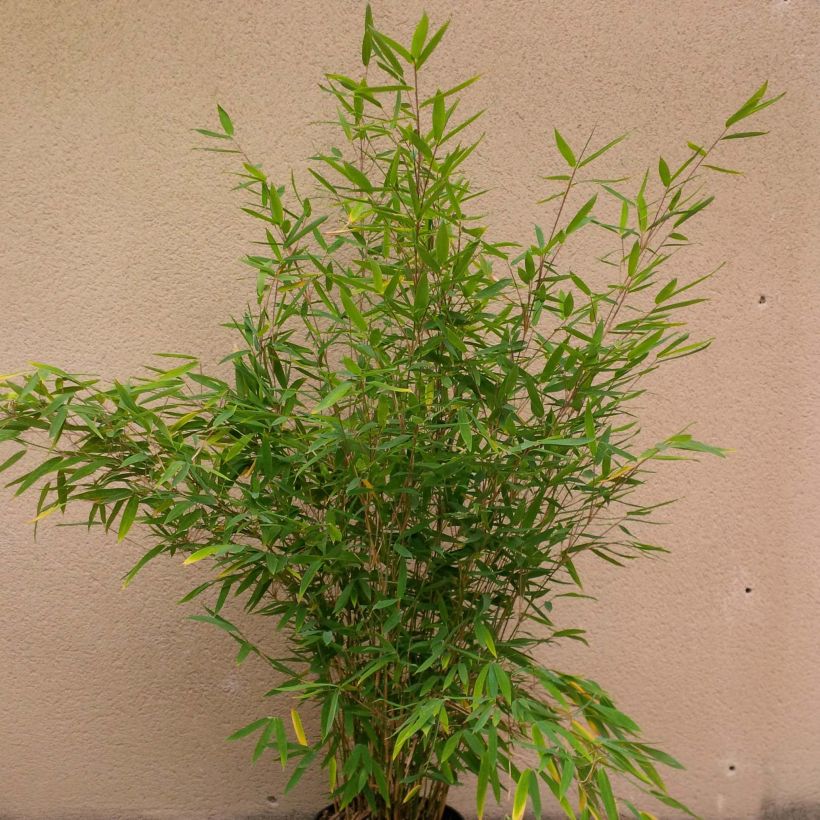

Plant habit
Foliage
Botanical data
Fargesia
nitida x murielae
Winter Joy ®
Poaceae
Fountain Bamboo, Chinese Fountain Bamboo
Cultivar or hybrid
Other Non-spreading Bamboos
Planting and care
The Fargesia Winter Joy® prefers partial shade, although it tolerates full sun and denser shade well. However, avoid excessively dry exposures as it dislikes intense sunlight and drought. Reserve a shaded spot for it, especially in the south. Plant this bamboo in rich, fairly well-drained and consistently moist soil, lime-free. If necessary, replace the soil in your garden with good horticultural compost and topsoil. Plant in spring or autumn. To create a hedge, allow for one plant every 60 to 80cm (31.5in). The mature plant requires about 20 litres of water per week during hot periods and 10 litres the rest of the year. In a pot, monitor watering, especially when the foliage is very abundant, and apply 2 handfuls of lawn fertilizer at the base of your non-spreading bamboo from early March to mid-April. This will result in greener foliage. This bamboo tolerates pruning very well. Slugs can devour young shoots. Like all other Fargesia species, this non-spreading bamboo does not require the installation of anti-rhizome barriers at planting. It maintains its green foliage throughout winter and loses some leaves throughout the year, more so in late autumn.
Planting period
Intended location
Care
-
, onOrder confirmed
Reply from on Promesse de fleurs
Evergreen shrubs
Haven't found what you were looking for?
Hardiness is the lowest winter temperature a plant can endure without suffering serious damage or even dying. However, hardiness is affected by location (a sheltered area, such as a patio), protection (winter cover) and soil type (hardiness is improved by well-drained soil).

Photo Sharing Terms & Conditions
In order to encourage gardeners to interact and share their experiences, Promesse de fleurs offers various media enabling content to be uploaded onto its Site - in particular via the ‘Photo sharing’ module.
The User agrees to refrain from:
- Posting any content that is illegal, prejudicial, insulting, racist, inciteful to hatred, revisionist, contrary to public decency, that infringes on privacy or on the privacy rights of third parties, in particular the publicity rights of persons and goods, intellectual property rights, or the right to privacy.
- Submitting content on behalf of a third party;
- Impersonate the identity of a third party and/or publish any personal information about a third party;
In general, the User undertakes to refrain from any unethical behaviour.
All Content (in particular text, comments, files, images, photos, videos, creative works, etc.), which may be subject to property or intellectual property rights, image or other private rights, shall remain the property of the User, subject to the limited rights granted by the terms of the licence granted by Promesse de fleurs as stated below. Users are at liberty to publish or not to publish such Content on the Site, notably via the ‘Photo Sharing’ facility, and accept that this Content shall be made public and freely accessible, notably on the Internet.
Users further acknowledge, undertake to have ,and guarantee that they hold all necessary rights and permissions to publish such material on the Site, in particular with regard to the legislation in force pertaining to any privacy, property, intellectual property, image, or contractual rights, or rights of any other nature. By publishing such Content on the Site, Users acknowledge accepting full liability as publishers of the Content within the meaning of the law, and grant Promesse de fleurs, free of charge, an inclusive, worldwide licence for the said Content for the entire duration of its publication, including all reproduction, representation, up/downloading, displaying, performing, transmission, and storage rights.
Users also grant permission for their name to be linked to the Content and accept that this link may not always be made available.
By engaging in posting material, Users consent to their Content becoming automatically accessible on the Internet, in particular on other sites and/or blogs and/or web pages of the Promesse de fleurs site, including in particular social pages and the Promesse de fleurs catalogue.
Users may secure the removal of entrusted content free of charge by issuing a simple request via our contact form.
The flowering period indicated on our website applies to countries and regions located in USDA zone 8 (France, the United Kingdom, Ireland, the Netherlands, etc.)
It will vary according to where you live:
- In zones 9 to 10 (Italy, Spain, Greece, etc.), flowering will occur about 2 to 4 weeks earlier.
- In zones 6 to 7 (Germany, Poland, Slovenia, and lower mountainous regions), flowering will be delayed by 2 to 3 weeks.
- In zone 5 (Central Europe, Scandinavia), blooming will be delayed by 3 to 5 weeks.
In temperate climates, pruning of spring-flowering shrubs (forsythia, spireas, etc.) should be done just after flowering.
Pruning of summer-flowering shrubs (Indian Lilac, Perovskia, etc.) can be done in winter or spring.
In cold regions as well as with frost-sensitive plants, avoid pruning too early when severe frosts may still occur.
The planting period indicated on our website applies to countries and regions located in USDA zone 8 (France, United Kingdom, Ireland, Netherlands).
It will vary according to where you live:
- In Mediterranean zones (Marseille, Madrid, Milan, etc.), autumn and winter are the best planting periods.
- In continental zones (Strasbourg, Munich, Vienna, etc.), delay planting by 2 to 3 weeks in spring and bring it forward by 2 to 4 weeks in autumn.
- In mountainous regions (the Alps, Pyrenees, Carpathians, etc.), it is best to plant in late spring (May-June) or late summer (August-September).
The harvesting period indicated on our website applies to countries and regions in USDA zone 8 (France, England, Ireland, the Netherlands).
In colder areas (Scandinavia, Poland, Austria...) fruit and vegetable harvests are likely to be delayed by 3-4 weeks.
In warmer areas (Italy, Spain, Greece, etc.), harvesting will probably take place earlier, depending on weather conditions.
The sowing periods indicated on our website apply to countries and regions within USDA Zone 8 (France, UK, Ireland, Netherlands).
In colder areas (Scandinavia, Poland, Austria...), delay any outdoor sowing by 3-4 weeks, or sow under glass.
In warmer climes (Italy, Spain, Greece, etc.), bring outdoor sowing forward by a few weeks.

































